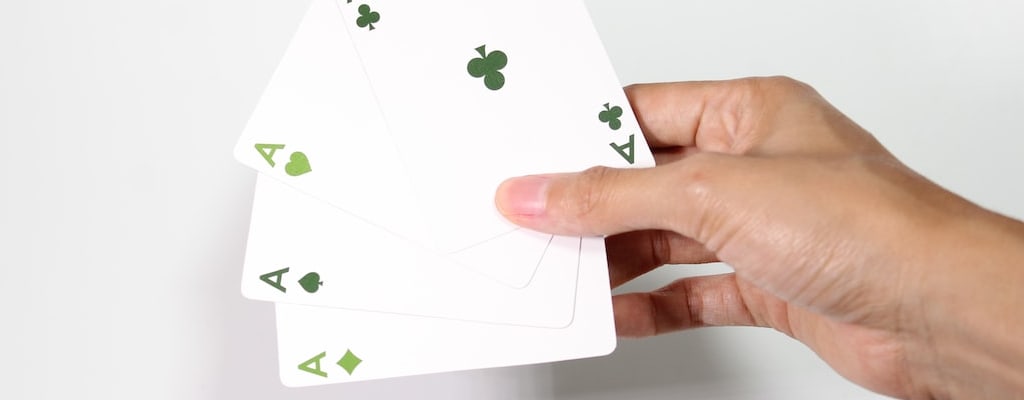game plan: Idiom Meaning and Origin
What does ‘game plan’ mean?
The idiom "game plan" refers to a strategic plan or approach that outlines the steps and actions needed to achieve a particular goal or outcome. It is commonly used in sports and business contexts.

Idiom Explorer
The idiom "know the score" means to understand and be aware of the situation or the facts.
The idiom "in the game" means actively participating or being involved in a particular activity or situation.
The idiom "in the game" has a clear and straightforward meaning. It indicates that someone is actively involved or participating in a particular situation or activity. It implies being fully committed and ready to contribute.
An idiom meaning to do something quickly and efficiently, often describing the completion of multiple tasks or actions in a single swift and decisive motion.
The idiom "home game" refers to a situation or event that takes place in one's own familiar environment or territory, giving a certain advantage or comfort compared to being in an unfamiliar setting.
The idiom "home game" is commonly used in American English and has a specific meaning in sports contexts. It refers to a game or match that is played on the home territory or home field of a particular team or individual.
The idiom "have in mind" means to have a specific idea or plan in one's thoughts or intentions.
The idiom "grand scheme" refers to the overall plan or strategy that encompasses all the smaller details and actions. It emphasizes the larger perspective and long-term goals rather than focusing on individual parts or immediate results.
The idiom "go to work" means to start doing the necessary tasks or activities to achieve a particular goal or result.
The idiom "go through with" means to complete or follow through with a plan, action, or commitment despite difficulties or hesitations.
The idiom "go through with" is commonly used in English language and has a specific meaning in various contexts. The facts about this idiom can be summarized as follows:
The idiom "go down the road" means to pursue a particular course of action or explore a certain path or avenue in life.
The idiom "give the game away" means to reveal or expose a secret or hidden truth, usually unintentionally, thereby spoiling a surprise, plan, or strategy.
Unlocking Strategy
The idiom "game plan" is a commonly used expression in American English. It refers to a carefully thought-out strategy or plan of action developed to achieve a goal or objective. Derived from the world of sports, where the term originated, "game plan" is now widely used in various contexts to describe a detailed plan or approach for accomplishing a specific task. The idiom is often used to emphasize the importance of careful planning, preparation, and foresight in order to increase the likelihood of success.
The origin of the idiom can be traced back to the field of sports, particularly American football. In football, a "game plan" is a pre-determined strategy that a team devises in preparation for an upcoming game. This plan includes specific plays, formations, and tactics the team intends to execute during the game to gain an advantage over the opponent. It takes into account factors such as the strengths and weaknesses of the players, the style of play of the opposing team, and the current circumstances of the game.
Over time, the concept of a "game plan" in sports has been adopted and applied in various other domains, including business, politics, and personal life. It has become a metaphor for a comprehensive strategy or approach that individuals or organizations develop to achieve their objectives.
When using the idiom "game plan," it is important to consider its figurative meaning and understand its intended purpose. It is not simply a plan or strategy, but a well-thought-out and detailed approach that takes into account various factors and contingencies. It implies a level of careful analysis, anticipation, and adaptability to navigate through challenges and ultimately achieve the desired outcome.
The idiom "game plan" is used in a wide range of contexts, from professional settings to everyday conversations. In business and management contexts, it is commonly employed to discuss strategic planning, goal-setting, and project management. In political discourse, the idiom is often used to describe the strategies and tactics employed by candidates or parties to advance their agendas and win elections.
However, the idiom is not limited to formal or professional settings. It is also frequently used in casual conversations to discuss personal plans and activities. For example, one might say, "I have a game plan for my weekend errands," meaning they have a well-thought-out plan for efficiently completing their tasks.
In addition to the idiom "game plan," there are related idioms that are worth exploring: "game out" and "grand scheme." When we "game out" a situation, we carefully consider different scenarios and strategize accordingly. This idiom reinforces the idea of thoughtful analysis and planning. Similarly, when we talk about the "grand scheme," we refer to the bigger picture or overall strategy that encompasses our game plan. These idioms highlight the importance of considering multiple factors and long-term objectives.
So, the next time you find yourself devising a detailed strategy or approach, be sure to refer to it as your "game plan." Whether in the realm of sports, business, or personal life, a well-thought-out and carefully executed game plan can greatly increase your chances of success. Remember to "game out" different scenarios and consider the "grand scheme" to create a comprehensive and effective strategy.
Example usage
Examples of how the idiom "game plan" can be used in a sentence:
- We need to come up with a solid game plan in order to win the championship.
- The team's game plan for this match involves a strong defensive strategy.
- She spent hours devising a game plan for her presentation in order to impress her boss.
More "strategy" idioms

